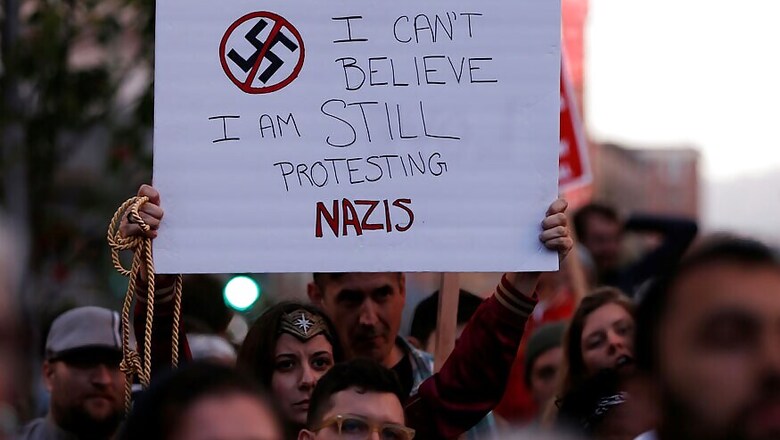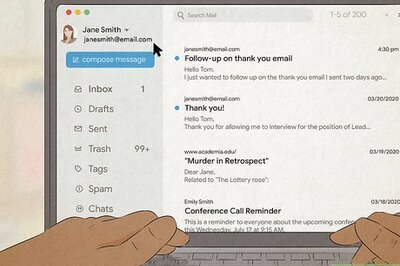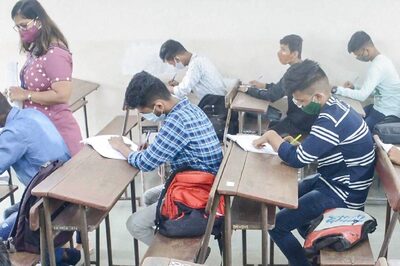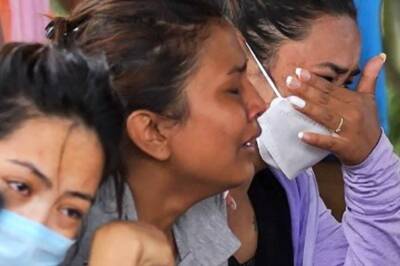
views
Charlottesville: President Donald Trump included the Ku Klux Klan and neo-Nazi groups in condemning violence after a white nationalist rally, the White House said on Sunday, the day after he was criticized on the left and right for not explicitly condemning white supremacists.
U.S. authorities are investigating the outbreak of violence, which has put new pressure on the Trump administration to take an unequivocal stand against that segment of his political base. Some rightists have claimed allegiance to Trump, a Republican.
A 32-year-old woman was killed and 19 injured, five critically, on Saturday when a man plowed a car into a crowd of people objecting to the white nationalist rally in the Southern college town of Charlottesville. About 15 people were injured after rival groups fought pitched battles using fists, rocks and pepper spray in the streets.
Trump was criticized by Republicans and Democrats for waiting too long to address the violence and when he did so, failing to explicitly condemn the white-supremacist marchers who ignited the melee.
On Sunday, however, the White House said in a statement that Trump's message on Saturday "condemns all forms of violence, bigotry, and hatred, and of course that includes white supremacists, KKK, neo-Nazi, and all extremist groups. He called for national unity and bringing all Americans together."
Trump, speaking at his golf resort in New Jersey on Saturday, had said that "many sides" were involved in Charlottesville. He made no reply to a reporter's shouted question whether he had spoken out strongly enough against white nationalists.
"We condemn, in the strongest possible terms, this egregious display of hatred, bigotry and violence on many sides," he said.
'WHITE NATIONALIST, WHITE SUPREMACIST'
Virginia police have not yet provided a motive for a man who rammed a car into the crowd, but U.S. prosecutors and the Federal Bureau of Investigation have opened a civil rights investigation, an FBI field office said.
Four people have been arrested, including James Fields, a 20-year-old white man from Ohio who is being held in jail on suspicion of crashing the car.
Federal authorities were also looking into a helicopter crash on Saturday that killed two Virginia state policemen aiding efforts to quell the clashes.
On Sunday morning, before the White House statement, Ivanka Trump, the president's daughter and White House adviser, appealed on Twitter for Americans to "be one country UNITED. #Charlottesville." She also posted: "There should be no place in society for racism, white supremacy and neo-nazis."
Also before the statement, U.S. Senator Cory Gardner of Colorado, who chairs the Republican Party's Senate election effort, called on the president to condemn "white supremacists" and to use the term. He was one of several Republican senators who squarely criticized Trump on Twitter on Saturday.
"Calling out people for their acts of evil - let's do it today - white nationalist, white supremacist," Gardner said on CNN's "State of the Union" program on Sunday. "We will not stand for their hate."
An organizer of Saturday's "Unite the Right" rally, which was staged to protest the planned removal of Confederate war hero Robert E. Lee's statue from a park, said supporters of the event would not back down.
"Absolutely we are going to have further demonstrations in Charlottesville because our constitutional rights are being denied," said Jason Kessler, whom civil rights groups identified as a white nationalist blogger. He did not specify when.
SOLIDARITY WITH CHARLOTTESVILLE
Across the United States, events were planned on Sunday to "stand in solidarity with Charlottesville ... honor all those under attack by congregating against hate" a loose coalition of civil society groups said in postings on social media.
Virginia Governor Terry McAuliffe, a Democrat, declared an emergency and halted Saturday's planned rally, but that did not stop the violence.
"There is no place for you here," McAuliffe said, addressing white supremacists. "There is no place for you in America."
The rally stemmed from a long debate in the U.S. South over the Confederate battle flag and other symbols of the rebel side in the Civil War, which was fought over slavery.
The Charlottesville violence is the latest clash between far-rightists and the president's opponents. At his January inauguration, black-clad anti-Trump protesters in Washington smashed windows, torched cars and clashed with police, leading to more than 200 arrests.

















Comments
0 comment